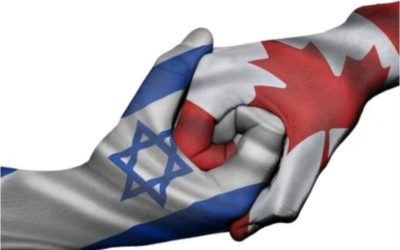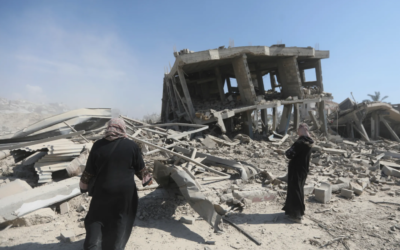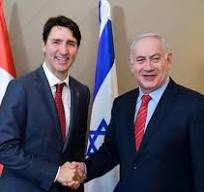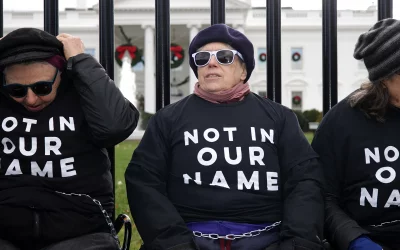CANADA AND PALESTINE: A PROFOUND ILLUSION [1]
*Rachad Antonius
Canada presents itself as country that respects international law and human rights. As far as Palestine is concerned, this is a profound illusion.
It has been three quarters of a century since the Nakba, the expulsion of the majority of Palestinians from the land they inhabited, was the inevitable consequence of the partition of Palestine. Beginning in 1947, before the establishment of the new state, the ethnic cleansing operation continued after the partition. This was the logical consequence of the establishment of the new State. How else could a state for Jews be established on a territory populated for centuries by a majority of non-Jews?
The partition of Palestine was not the only possible solution to the tensions resulting from the massive arrival of European Jewish refugees fleeing persecution and genocide. A confederation uniting the European Jewish refugees and the Palestinians, who constituted the host society, had been proposed by Arab countries.
The combined action of two Canadians, Lester B. Pearson, and Justice Ivan C. Rand, within UNSCOP (the United Nations Special Committee on Palestine), was decisive in ruling out the solution of a confederation, and in ensuring that only the solution of partition was submitted to a vote of the UN General Assembly. The immediate consequence of partition was the expulsion of Palestinians from their land, and in the longer term, a system that many observers no longer hesitate to call apartheid.
Oslo, and a hope for peace
The Oslo Accords of 1993 renewed hope for a peaceful outcome to the conflict. Realizing that Western countries would never correct the injustice they had created, the Palestinians made a huge historic compromise: to settle for the remaining 22% of Palestine, the West Bank and Gaza. This solution was not fair to them, but it would end the conflict by enshrining Israeli supremacy.
However, Israel still wanted to nibble away at the remaining 22%. Under the pretext of gradually returning control of the occupied territories to the Palestinians, these agreements allowed for a major intensification of colonization in the areas under Israeli control, i.e., the majority of the West Bank. During the peace negotiations, the number of Israeli settlements increased rapidly, as did the number of settlers. Building bans and the destruction of Palestinian homes already built have continued. Judaization of the Arab part of Jerusalem intensified aggressively, and many Palestinian families in Jerusalem and Hebron were evicted from their homes to make way for Jewish families. Hundreds of Israeli checkpoints in the West Bank have crippled the Palestinian economy and made the daily lives of Palestinians painful and humiliating.
Canadian policy
Canadian policy has been relatively consistent over the years since Oslo. The Canadian policy on key issues in the Israeli-Palestinian conflict[2] document is slightly modified from time to time, but it maintains a constant course: respect for international law is proclaimed, the Fourth Geneva Convention of 1949 is recognized as applying to the occupied territories, Israeli settlements in the West Bank are considered illegal, as is the annexation of Jerusalem. The desire to see a Palestinian state is also affirmed.
But what is the problem, then?
The problem is that after affirming its respect for international law, Canada believes that the solution will be achieved through “direct negotiations between the parties”. However, given the enormous difference in political, economic, and military power between the two parties, without direct and strong pressure on Israel by its allies and friends, it is not international law that will be applied. It is the raw balance of power that will dictate the terms of the solution. The Palestinians have international law on their side, but they have neither the strength to enforce it, nor the allies to help them.
No Canadian government has ever taken the slightest concrete action that would pressure the occupying power into withdrawing from the occupied territories. The chosen strategy is rather to exert all possible pressure on the Palestinians to sign agreements that consecrate and legitimize their dispossession, corrupting their elites if necessary. In this way, the fiction of Canada’s respect for international law is preserved, but the occupation continues. The two main parties that share power at the federal level multiply their gestures of friendship and praise for the occupying power.
Without a strategy of real sanctions and an end to political, economic, scientific, industrial and security cooperation with Israel, the political situation will only worsen, with likely disastrous consequences for all the peoples of the region. In the long term, Canada’s interests and international credibility are also at risk.
* Rachad Antonius is Honorary Professor at UQAM (Université du Québec à Montréal). This year he published Islam et islamisme en Occident with Ali Belaidi at PUM (Presse de l’Université de Montréal)
Source : https://www.ledevoir.com/opinion/idees/791833/idees-canada-et-palestine-une-profonde-illusion
[1] Summary of a lecture delivered at the Balsillie school of International Affairs at the University of Waterloo on May 15, 2023.
[2] international.gc.ca/world-monde/international_relations-relations_internationales/mena-moan/israeli-palistinian_policy-politique_israelo-palestinien.aspx?lang=eng








